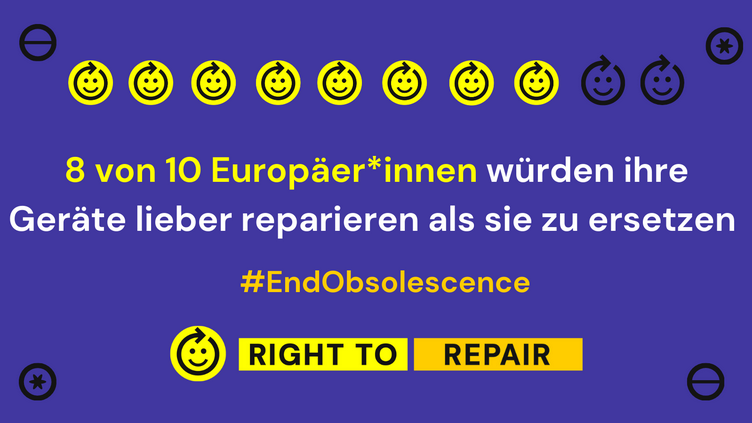The European Parliament demands comprehensive measures from the EU Commission against premature obsolescence and pro repair
At the end of November 2020, the EU Parliament paved the way for the right to repair in Europe. With the resolution on "a more sustainable single market for businesses and consumers" (to the original text), the European Parliament is demanding extensive measures from the EU Commission against premature obsolescence and for sustainable, repairable products.
What does the right to repair mean in concrete terms?
- There is a call for mandatory labeling of repairability and service life on products.
- All practices that effectively shorten the life of a product should be added to the list of prohibited unfair business practices.
- The "right to repair" is intended, among other things, to promote the standardization of spare parts and give consumers free access to repair instructions.
- Independent workshops and repair businesses are to be supported and the transfer of guarantees for used goods is to be made possible. All this is intended to lead to new and sustainable business models, thus creating local jobs.
The successful vote was preceded by a heated debate in which conservative and liberal parties tried to water down the original and more ambitious version of the report. In the run-up to the vote, R.U.S.Z also lobbied MEPs to keep the original demands as part of the Right to Repair coalition. Mailings were sent to MEPs in the EU Parliament for this purpose. And this successfully: the proposal was adopted, albeit in part very narrowly: the vote on obsolescence was decided by a margin of only two votes.
For more detailed information on voting behavior, see the article from RepaNet.
You can find the text of Sepp Eisenriegler's mail to the Austrian members of the EU Parliament in the R.U.S.Z-Flankerl 06/2020.
You can listen to the Ö1 radio report EU: A right to repair for climate protection on our Soundcloud.
